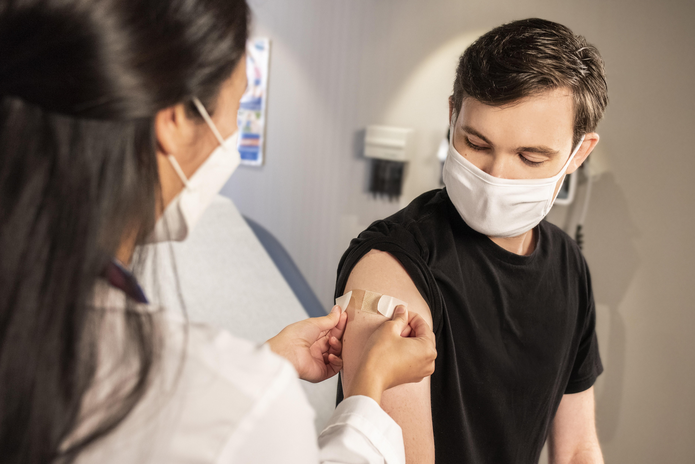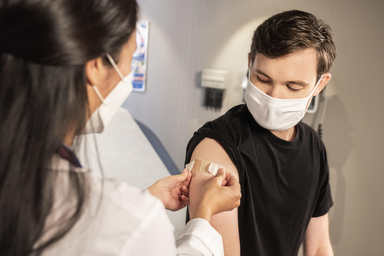The booster shot has been available to the elderly and immunocompromised for a few months now, but in the past weeks, the Centers for Disease Control and Prevention (CDC) has amended the eligibility requirements for the shot to include people with mental health conditions and mood disorders, including, but not limited to depression and schizophrenia spectrum disorders.
On the CDC website’s list of medical conditions that would make one eligible to receive the booster shot, they share that “Having mood disorders, including depression and schizophrenia spectrum disorders, can make you more likely to get severely ill from COVID- 19.” The National Institute of Mental Health provides that the coronavirus outbreak has been severely emotionally distressing for many people, and they are unable to cope in certain ways, increasing fear and anxiety, making them more prone to experience the worst symptoms of the disease if contracted. The CDC has recognized these mental illnesses as higher risk factors for COVID-19 allowing people with these mental disorders to receive the booster shot six months after they have received their second COVID-19 vaccination.
Studies have shown that people with schizophrenia are three times more likely to die from coronavirus than those without it, and it is second only to age as being one of the highest risk factors. A possible explanation provided by NYU medical students is that the genetics of the disorder causes immune system disturbance, making those who suffer from the disorder more susceptible to the severe symptoms, and more likely to die from it.
Researchers also believe that mental health issues such as depression, which shortens the life expectancy of a person, also makes people more likely to die from COVID, due to their inability to cope with the effects of the pandemic and being heavily pained with not only physical sickness but also grief. Studies led by the CeReSS-Health Service Research and Quality of Life Center in Marseille, France showed that “regardless of the primary medical risk factors for severe COVID-19, patients with mental illnesses (i.e. addiction, depression) were more likely to die [of COVID-19] than their peers.” This evidence is supported by the consideration of other factors, such as barriers in access to care, immunological disturbances and the effects of psychotropic drugs. Patients with these mental illnesses have impaired immune defenses to begin with, which makes them just as susceptible (and perhaps even more) as those with chronic physical health conditions to die from COVID.
A similar study done by the University of Toronto further supported the claim that those with mood disorders were at significantly higher risk for hospitalization and death if they were to contract COVID-19 and compared mental illness to other risk factors such as cancer and obesity when determining the severity of such health factors concerning COVID.
Taking into account all the research found in these studies, the CDC deemed these certain mental illnesses and mood disorders as high enough risk factors for patients who suffer from them to receive the COVID-19 booster shot, due to their vulnerability to the disease as well as their high mortality rates caused by contraction and has added people with these mental illnesses to the list of at-risk patients when considering coronavirus.
Want to see more HCFSU? Be sure to like us on Facebook and follow us on Instagram, Twitter, TikTok, YouTube and Pinterest!



